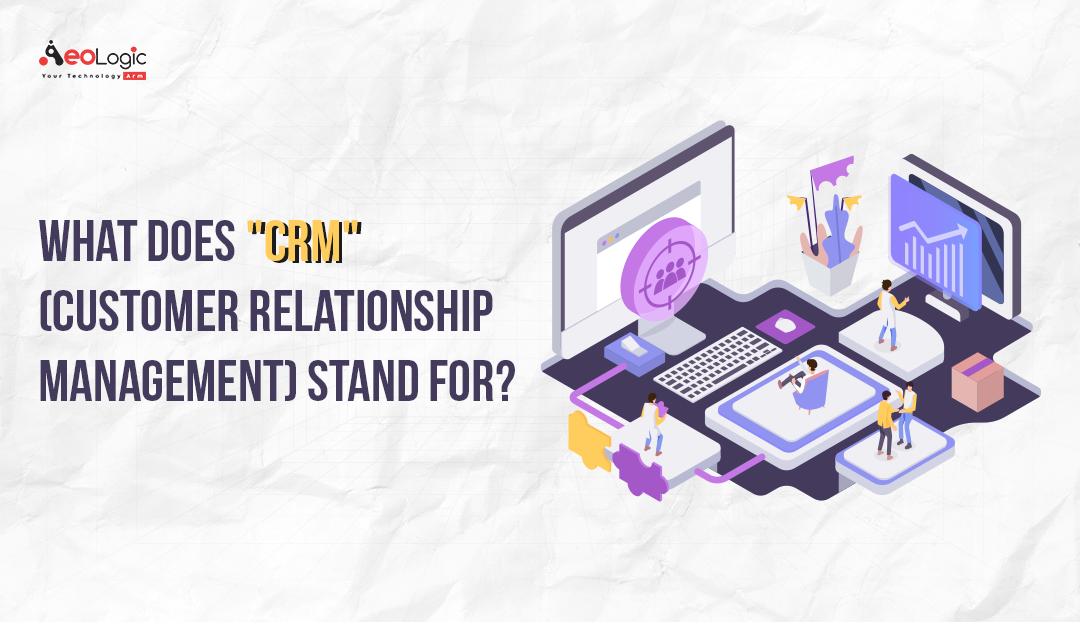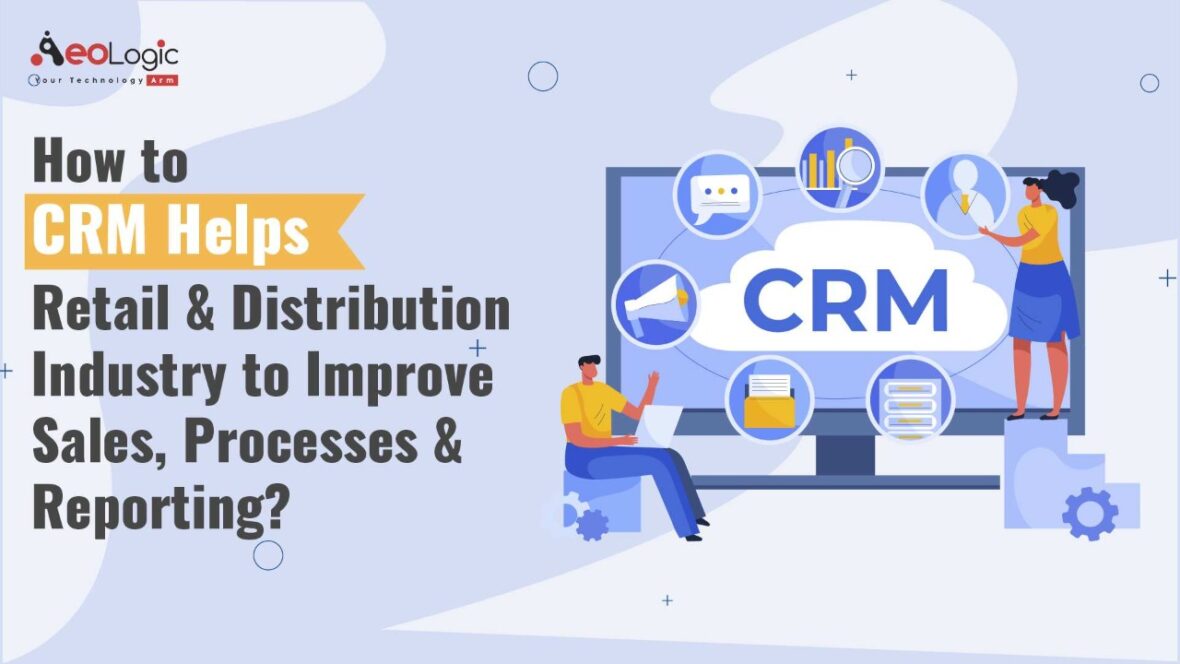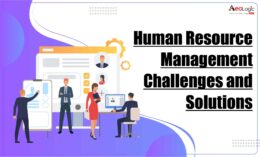Customer relationship management (CRM) is a tech innovation that focuses on building relationships with customers. It does this by using technology that lets marketing, sales, and service share information and work together as a team. Companies of all sizes use CRM in a variety of departments, including sales and customer service. If you want to know what CRM is and how it helps the retail and distribution industries improve sales, processes, and reporting, you should read this blog.
Let’s begin!
What Does “CRM” (Customer Relationship Management) Stand for?

Customer relationship management is a company’s plan for how to deal with its customers. CRM’s goal is to boost sales by making customers more satisfied and happy. CRM systems track customer experiences and conversations. This data can be utilized for product segmentation and consumer communications. The collected data can help retain and develop clients. CRM answers these questions:
- Who should be your customers?
- What is the right combination of customers by time period?
- How do we keep current customers?
Also Reads: The Importance of CRM in the Retail Sector
CRM gives companies more control over the process and can also help them sell more to their existing customers and make more money. CRM strategies and tools include software. Its software saves customer data. In a standard CRM program, employees write notes throughout the sales cycle. A company can easily build reports from this data to design a CRM strategy for each customer. So, it can handle whatever you throw at it. Here’s a list of the most important parts of a CRM:
- Revolutionizing marketing
- Tracking sales
- Business intelligence
- Managing employees and automating work processes
- functionalities like integrating social media, managing data, and sending emails.
CRM Helps to Improve Sales
When you’re trying to target a sale, the last thing you need is to be slowing down by entering data. Your CRM system can make this step easier. Did you know that non-sales estimate users take 80% longer to make the average quote or proposal? Because your CRM has collected customer data throughout the sales cycle, it will already have all the relevant information.
It’s as simple as clicking “create an estimate,” making sure everything looks good and clicking “send to customer.” Hence, no entering the same information twice, and no laborious documents. Your customer can view your estimate as a mobile-friendly URL and accept it with just a few clicks.
Also Reads: How Retail Apps are Reshaping the Customer Experience?
CRM Helps to Improve Process
If a company has a good CRM system, it can not only improve its sales process but also improve its brand name. This is one of a company’s most important goals because it lets them maximize their profit margins and be seen as the leader in a certain business area. It also helps businesses get more customers and grow their range of services. Here are the steps of the CRM process are as follows:
- Make a good impression on potential customers.
- Developing a strong brand identity
- Maintain an independent point of view.
- Providing customers with a unique product offering.
- Keep customers informed by using all communication channels.
CRM Helps to Improve Reporting
Reporting provides insight into how your present strategy influences the success of your company. It also helps you understand what you can do to boost your efforts. Such as increasing the number of salespeople you employ or redistributing the jobs you have to do. So, for successful reporting, you need to use sales metrics, which are numbers that tell you how each part of your sales operations is doing. Are you making progress toward your goals or not? It is expected that you will be able to measure the following four KPIs using the normal sales funnel:
- The number of deals currently in your sales pipeline.
- The typical value of a transaction in your sales funnel
- Sales velocity, often known as the average lifespan of a deal until it is won,
- The ratio of deals that are successfully closed, is also known as the close ratio.
CRM software aims to boost the effectiveness of sales teams by reducing their processes. Calendars, contact management software, and call reporting software are some of the most common features found in these systems.
Also Reads: Top AR & VR Trends to Transform E-commerce in 2022
Conclusion
CRM is the practice of managing, tracking, and analyzing customer data. It also provides a means for businesses to run their operations more efficiently. A CRM system can help the Enhancement companies enhance customer happiness, loyalty, profitability, and retention rates by allowing them to better understand and serve their customers. CRM has the potential to evolve into a more targeted approach through the use of future research. It is going to be suitable for the industry or business. Because of this, it would be possible to validate the effect that each CRM approach has on the overall business performance of an organization. A CRM is a tool that can benefit your company. Whatever stage your business is in, I hope you find this blog helpful.
At Aeologic Technology, we know how important it is to have a good business plan. Contact us today to find out more about the importance of CRM in the retail sector.







